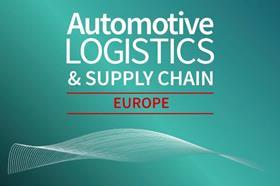Antwerp-Bruges increases vehicle traffic in face of tight capacity
The European ports of Antwerp and Zeebrugge have recorded a 9% increase in the number of finished vehicles handled in calendar year 2023 to 3.56m. The merger of the Belgian ports under one operating authority was finalised in April 2022 and since last year it has reported joint volumes.
The port authority said the increase was down to the input of volumes from new OEMs that want to conquer the European market, the transition to electric vehicles (EVs) and the fulfilment of backlogs created by the drop in sales during Covid and the consequent impact on component supplies for manufacturing, as seen with the semiconductor crisis.

While it acknowledged the increase in new OEMs looking at expanding into the European market, the volume of Chinese-made vehicles carried by ro-ro vessels had not increased in 2023, according to the port authority. High volumes of those vehicles have been sent by containers because of the lack of ro-ro tonnage.
“The Far East is our most important region for car imports,” said the port authority’s spokesperson. “Japan is the most important origin country and China is the second. Container and ro-ro combined, there is a growth in total car imports from China.”
The port authority told Automotive Logistics that, as with other European ports, it faced some terminal capacity challenges last year. That was caused by a number of issues, including large incoming volumes, a low rotation of stocks because of a slowdown in sales and the decision by OEMs to create a larger strategic stock at the port for faster delivery to customers. It also pointed to the increase of online sales and the transition from a dealer to agency network. European carmakers are increasing direct sales through online platforms for a fixed fee alongside traditional dealer sales.
The port authority also pointed to the shortage of truck drivers and equipment as a reason for congestion.
Mitigating congestion
To deal with this tightness of capacity the port authority has been working with its terminal operators on finding solutions.
“We are happy that multiple terminal operators decided to maximise the use of land in our port by building multilevel cardecks on their sites,” said a spokesperson for Antwerp-Bruges port authority. “Next to that, as port authority, we made extra land available on temporary basis for car handling in our port and are making additional quay wall capacity available.”
While road haulage is suffering from driver and equipment shortages, the share of vehicle volumes delivered and picked up by rail is increasing, as a consequence, and also because OEMs are looking for more sustainable transport options in line with EU reporting rules on CO2.
In addition, to help make processing more efficient Antwerp-Bruges is benefiting from a digital radar and camera network, including the use of drones, to provide transparency on port activity and maintain safe and efficient shipping.
“The radar, camera and drone network provides transparency in the operational efficiency of our port platforms,” said the spokesperson. “The collected data is connected to the digital twin, Apica [Advanced Port Information and Control Assistant], and gives all our colleagues a good view on the real-time status of the port. Having this means that the terminal operators can also be informed of the exact arrival information of the vessel they expect.”
Looking ahead, the port authority said that it expected the disruption to ocean going vessels caused by Houthi attacks on shipping in the Red Sea to delay vessel arrivals and impact capacity because of longer transit times to and from Europe and the Far East.
The spring edition of Automotive Logistics magazine, which is published in March this year, will include more detail about developments at the port of Antwerp-Bruges alongside activity of the other top performing vehicle-handling ports in Europe.






